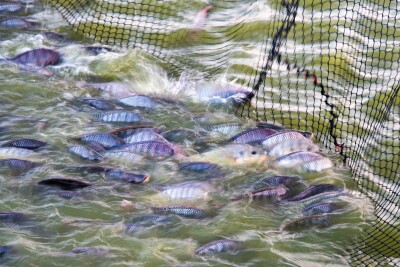SAMUT SAKHON, Thailand (AP) — Facing international pressure for failing to stop human trafficking in the seafood trade, Thailand promised almost a year ago to compensate victims of slavery and industry leaders vowed to bring all shrimp processing in-house.
That hasn't always happened. Instead, some formerly enslaved shrimp peelers have been deported. And some shrimp peeling sheds are being inspected and authorized to keep operating.
Tin Nyo Win, who escaped slavery and alerted police to abuses, was deported to Myanmar this month, along with his pregnant wife and a half-dozen others, after being held almost a year in a Thai government shelter. Authorities said that although the couple were victims of modern-day slavery, they had illegally entered Thailand to begin with.
"They don't treat us like humans. They treat us like dogs," Tin Nyo Win said hours before Thai authorities took them away. "They just try to bully those of us who are victims already."






